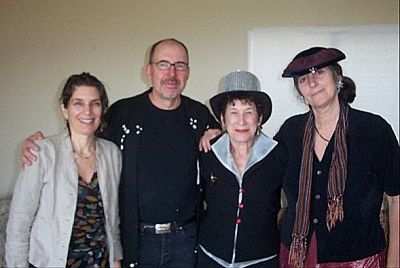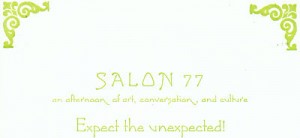Both of these are by Lisa Rappoport:
Czeslaw Milosz Buys Lion or Tiger Urine at the Oakland Zoo
—or so it has been reported: or rather, so goes the report
of his intent, unaccompanied by any definitive evidence
of whether he did so, or no. He loved the deer, he loved
their musky attendance at his dwelling in exile on the Western
coast of this country, in the hills above Berkeley, at the edge
of the regional park called Tilden. But he loved also his garden,
the trees, the new life that both burgeoned and was encouraged
to burgeon; and the deer loved these also, but after their fashion,
which tended toward destruction. So other than building
eight-foot-high fences to exclude the visitors, the best
modern alternative to discourage their appetite
was to spread the urine of their enemies
about the perimeter of the property.
Although I cannot say whether the intended purchase was made,
the end of the story is that on the morning when news arrived
of Milosz’s faraway death in his once homeland, deer congregated
in the small yard, more than had ever been seen there. I like
to imagine them pushing and milling, crowding, stamping, bidding
a cervine farewell to a poet and a century, creating presence
in a place of absence.
The Death of Longing
In that alternate universe
where desperation is an aphrodisiac,
happiness is visible, palpable, and smells
like bubblegum; but poetry has shriveled
and you see people barfing all day long
from their disgust at reading, viewing,
and living a life of schmaltz. The word
longing means going for a lengthy walk,
and to miss someone is as rare and outmoded
as to contract a case of the vapors. Hearts
don’t break, they bend, like malleable rubber
balls that bounce without bruising themselves
or their targets. The more one is hurt, the more
confidence he gains, and slights are regarded
as compliments and exercise opportunities. Instead of
black holes physicists discuss white mounds: places
of infinite lightness, outside of the pull of gravity,
which reflect and turn back all that approaches.
The few remaining poets write mainly about latitude, longitude
and trigonometry, and are read only by the few remaining
librarians, those specialists whose job descriptions do not forbid
the reading of banned books. Some inhabitants have never returned
from their youthful longings.


